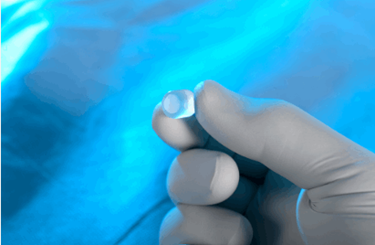Synthetic Cartilage, Bioelectronic Device To Ease The Pain Of Arthritis
By Jof Enriquez,
Follow me on Twitter @jofenriq

Novel medical device technologies – the first synthetic cartilage implant approved by FDA and a bioelectronic implant to stimulate the vagus nerve – present new approaches to treating arthritic pain.
Cartiva's Synthetic Cartilage Implant (SCI) has received premarket approval (PMA) from the U.S. Food and Drug Administration (FDA) as the first synthetic cartilage device ever, and the first indicated for painful arthritis at the base of the great toe. The Orthopaedic and Rehabilitation Devices Panel convened by FDA in April voted 10-to-two in favor of the safety of SCI, nine-to-three in favor of its efficacy, and eight-to-two, with two abstentions, that the benefits outweighed the risks.
The company had expected PMA approval later this year, but FDA granted it less than three months after the panel convened. FDA approved Cartiva's PMA bid based on positive data from the 236-patient, multi-center, prospective, randomized study comparing the cartilage implant to joint fusion surgery. Results showed that 93 percent of patients who were implanted with the Cartiva device reported a reduction in median pain, and experienced a 26 percent improvement in range of motion from baseline, and a 65 percent improvement in activities of daily living.
A biocompatible, biomedical polymer implant, SCI is the first PMA approved alternative to fusion of the arthritic joint’s bones with screws and plates, the current standard of care. Traditional fusion alleviates pain at the cost of restricted range of motion in the joint, but the Cartiva implant is claimed to bring pain relief while also preserving motion and function.
“Before Cartiva SCI, the options we could provide to patients with osteoarthritis of the great toe were limited, as the fusion procedure often necessitates sacrificing range of motion to get pain relief,” said Dr. Mark Glazebrook of the Queen Elizabeth II Health Sciences Centre in Halifax, Nova Scotia, who uses the implant in his practice, in a press release. “Due to the simplicity of the procedure, speed of recovery and range of motion benefits, I see that patients are relieved to have this option available to them and the majority are electing Cartiva over fusion.”
The SCI device is implanted during a 35-minute outpatient procedure. Unlike post-fusion patients with osteoarthritis (OA), an SCI patient can immediately begin weight-bearing activities after the short procedure. As an alternative, this new type of implant could bring relief to millions of people suffering from OA, the most common form of arthritis characterized by the breakdown of cartilage through wear and tear.
Meanwhile, researchers are using a different kind of device – a bioelectronic implant, also known as an "electroceutical" – to treat the autoimmune disorder rheumatoid arthritis (RA). The Academic Medical Center/University of Amsterdam, the Feinstein Institute for Medical Research, and SetPoint Medical touted recently clinical human trial data published in the Proceedings of the National Academy of Sciences (PNAS) that showed how the tiny implant reduces symptoms of RA.
The implanted device, which stimulates the vagus nerve, successfully suppressed several key cytokines (like TNF) and reduced signs and symptoms of the study group, which included people who have not responded well to standard pharmaceutical regimen, according to a press release.
"Our findings suggest a new approach to fighting diseases with bioelectronic medicines, which use electrical pulses to treat diseases currently treated with potent and relatively expensive drugs," said Anthony Arnold, CEO of SetPoint Medical. "These results support our ongoing development of bioelectronic medicines designed to improve the lives of people suffering from chronic inflammatory diseases and give healthcare providers new and potentially safer treatment alternatives at a much lower total cost for the healthcare system."
SetPoint Medical has developed an implantable miniature neuromodulation device that activates the body's natural inflammatory reflex and is intended to reduce signs and symptoms of inflammation. In addition to RA, the company is testing the investigational device to treat Crohn’s disease and other autoimmune and inflammatory diseases. SetPoint is backed by the pharmaceutical giant GSK, which is heavily investing in bioelectronics as a potential alternative or adjunct to traditional drug therapies.
